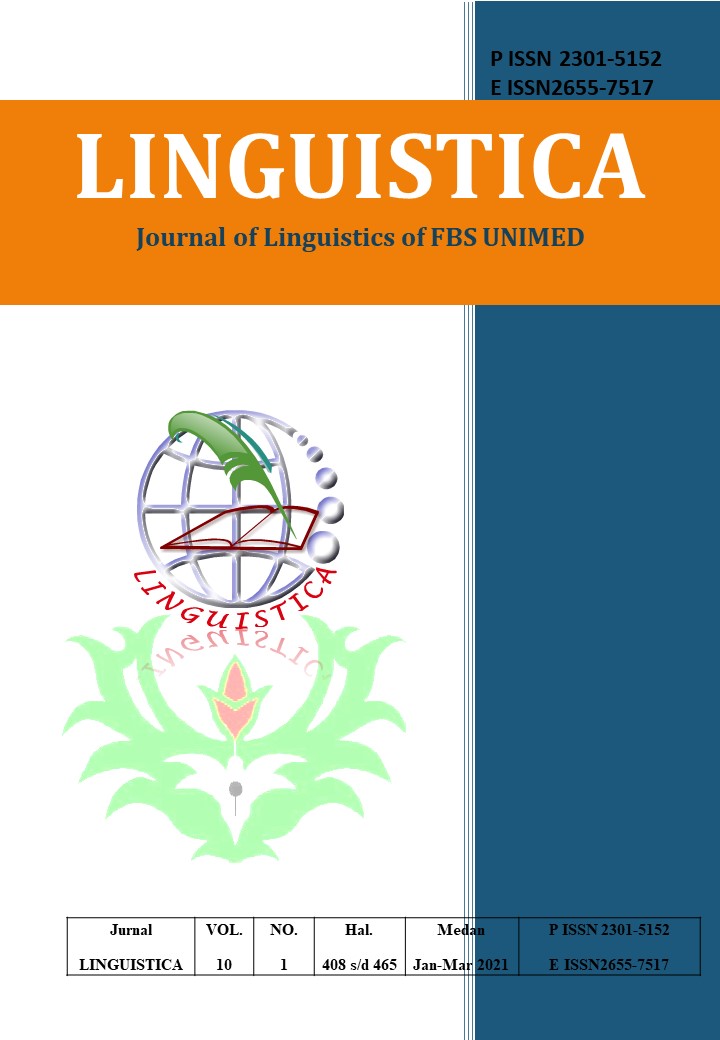INTERPERSONAL MEANING IN THE SHORT STORIES OF WILLEM ISKANDER™S SI BULUS-BULUS SI RUMBUK-RUMBUK
DOI:
https://doi.org/10.24114/jalu.v10i1.24252Abstract
This study aimed to analyze the mood and modality used in the short stories of Willem Iskander™s Si Bulus-Bulus Si Rumbuk-Rumbuk, elaborating and explaining the interpersonal meaning realized in each short story. The source of data was taken from a book authored by Willem Iskander, entitled œSi Bulus- Bulus Si Rumbuk-Rumbuk. This research showed that : (1) there were 157 clauses in the short stories with three mood types and two degrees of modality. (2) interpersonal meaning is realized based on the order of the subject and the finite. (3) the reason why the interpersonal meaning is realized in the way they are is that the author wants to share his thoughts and experiences of Mandailingnese by classifying each clause and finding the dominant use of declarative mood as the most direct and soft way of conveying the author™s thoughtDownloads
Published
2021-04-08
How to Cite
SALSABILA, U. Y., GINTING, E. M., & SARAGIH, W. (2021). INTERPERSONAL MEANING IN THE SHORT STORIES OF WILLEM ISKANDER™S SI BULUS-BULUS SI RUMBUK-RUMBUK. LINGUISTICA, 10(1), 409–417. https://doi.org/10.24114/jalu.v10i1.24252
Issue
Section
Articles
License
Copyright (c) 2021 ULFA YOZA SALSABILA, ELIA MASA GINTING, WILLEM SARAGIH

This work is licensed under a Creative Commons Attribution-ShareAlike 4.0 International License.
Authors who publish with this journal agree to the following terms:
- Authors retain copyright and grant the journal the right of first publication with the work simultaneously licensed under a Creative Commons Attribution License that allows others to share the work with an acknowledgment of the work's authorship and initial publication in this journal.
- Authors are able to enter into separate, additional contractual arrangements for the non-exclusive distribution of the journal's published version of the work (e.g., post it to an institutional repository or publish it in a book), with an acknowledgment of its initial publication in this journal.
- Authors are permitted and encouraged to post their work online (e.g., in institutional repositories or on their website) prior to and during the submission process, as it can lead to productive exchanges, as well as earlier and greater citation of published work (See The Effect of Open Access).
- This work is licensed under a Creative Commons Attribution-ShareAlike 4.0 International License.









